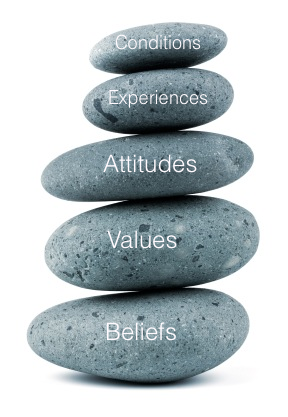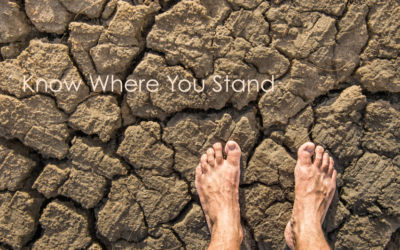 Is your belief system–which is formed on the conditions, environment, and experiences you have had since you were born–rock solid?
Is your belief system–which is formed on the conditions, environment, and experiences you have had since you were born–rock solid?
“Virtue is attended by more peace of mind than vice and meets with a more favorable reception from the world.”
– David Hume
Belief System in Development
Each of us has a worldview, which is formed on a certain set of beliefs, values, and attitudes that we think are true based on the conditions, environment, and experiences we have had since we were born. Since nobody has had exactly the same formative experiences, we all have unique belief systems. We tend to ally ourselves with those who share our strongest beliefs, and we sometimes find ourselves in conflict with those who don’t.
During disputes, rather than question our own beliefs, we usually try to find weaknesses in others’ beliefs. But it is important for us to question our own beliefs. They aren’t always as rock solid as we imagine. They may spring from limited information or from one particularly traumatic experience.
What do you believe?
These questions will help you define you–as a person and a leader:
- Do you believe in god?
- How did life begin?
- Why are you on earth?
- Are we alone?
- Where do we go after we die?
- What is the meaning of life?
- Are moral values absolute or relative?
- What is justice?
- How do we know what is right?
- Are the rich responsible to support the poor?
Belief System Awareness
How did you come to believe what you believe? The following questions were inspired by Belief System Awareness:
- Make a list of your most important beliefs or narratives (religious and non-religious), then write down where they came from. Do they come directly from an accepted belief system, or did you modify them somehow?
- Compile a more complete list of beliefs–all the ones you can think of. Now write down the names of your parents and grandparents. Draw a line between each belief to the people who share that belief. Decide which of these beliefs actually belong to you with intention and which you have accepted unintentionally. Now examine the beliefs you have that your parents and grandparents don’t share. Why is it that you hold these beliefs and they don’t?
- Which of our country’s cultural beliefs do you embrace? When was this belief formed–for you and our country? Why does it feel true to you now?



